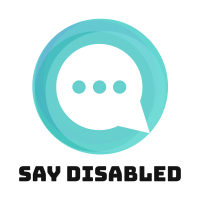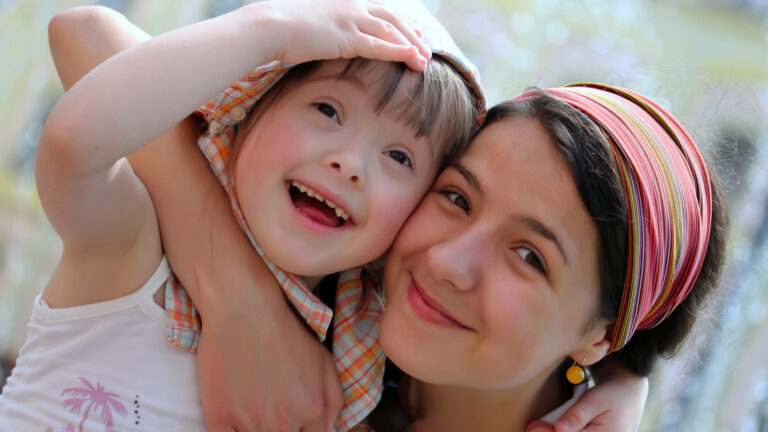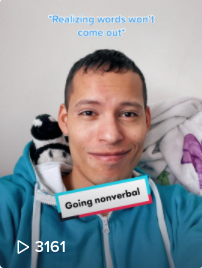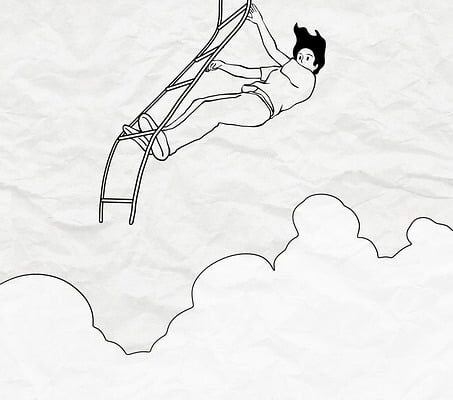It’s Time to Get Off the Euphemism Treadmill
People do not realise the extent to which their attitudes have been conditioned since early childhood by the power of words… Negative language inflicts the subconscious of most people from the time they first learn to speak. Prejudice is not merely imparted or superimposed. It is metabolised in the bloodstream of society.
Saturday Review 1967
Throughout history, the language we use to talk about people with disabilities has evolved. We no longer use terms such as handicapped/handicapable, mentally/physically challenged, crippled/crip/gimp, differently-abled and other euphemized terms to designate that a person is disabled. Developmental Disability and Intellectual Disability (ID/DD) have replaced the term retarded, while the “R” word, in turn, was originally coined in the mid-1900s as a nicer word replace idiot, and imbecile and moron. Today we recognize those terms as insults, but they were actually once used as medical terms to specify different degrees of intellectual disability:
“Idiots. —Those so defective that the mental development never exceeds that of a normal child of about two years.
Imbeciles. —Those whose development is higher than that of an idiot, but whose intelligence does not exceed that of a normal child of about seven years.
Morons. —Those whose mental development is above that of an imbecile, but does not exceed that of a normal child of about twelve years.”
Edmund Burke Huey, Backward and Feeble-Minded Children, 1912
Everything about this passage is offensive to us over 100 years later. Normal? Backward? Feeble-Minded?! The origins of these words are telling when it comes to societal attitudes about people with disabilities. For example, the word imbecile comes from Latin in meaning no and baculum meaning a stick or staff, i.e. a person who was imbecillus would be someone without a staff to support them. That evolved into the French word imbécile meaning feeble or weak in the 15th century and le sexe imbécile had sometimes been used to connote women, i.e. “the weaker sex.” Moron, from ancient greek moros meaning dull, was coined in 1910 by Psychologist Henry Goddard to replace feeble-minded (from Latin flebilis, meaning to be lamented) which was widely used in the late 1800s and early 1900s. Although feeble-minded was intended to convey a person with only mild intellectual disabilities, people started using it incorrectly to refer to all people with ID and as an insult, which necessitated creating new terms. This shift, I recently learned, is called the euphemism treadmill – a medical term is coined, it becomes more widely used by the public and takes on a new meaning so a new term is coined, and so on. The most recent of these terms rolling along the euphemism treadmill is “special needs” and it’s time we retire this term too.
Here’s why:
- People with disabilities deserve the right to self-determination. Just like everyone else, we should have the right to define ourselves. But all of these euphemized terms for disability were created by nondisabled people without our input. While doctors and psychologists created terms like moron and retard, differently-abled was created in the 1980s by the Democratic National Committee and special needs was popularized by parents of disabled children in the 1990s, as a way to soften the blow of the word disabled. Should disabled people have to suffer with an inaccurate word being used to describe them that creates meaningful harms just because other people aren’t quite yet ready willing to acknowledge the fact that we have a disability? Words matter. If disabled people didn’t create these words and don’t buy into them, then abled people should not be using them to describe us. Period. Imagine the uproar that would happen if white people made up a term for black people and started naming institutions and government offices with this term, created schools with this term, named websites and groups with it etc., effectively forcing them to use this term for themselves even though they had no input in the matter. This is precisely what has happened to disabled people – society has allowed nondisabled people to invent the language that is used to describe us. Why is there no uproar?
- People with disabilities are asking you not to euphemize disability. We’re telling you not to say special needs, differently-abled, handicapped, handicapable and so on. How would you feel if someone called you handicapable or differently-abled? Try the word on for size for a moment. It feels like you’re being infantilized or patronized, doesn’t it? That is how people with disabilities feel in many of our interactions on a daily basis. We ask that you please don’t contribute to this culture by using the outdated terms that we’ve literally asked you not to say. It isn’t that hard not to say a word that’s harming other humans.
- Terms like special needs harm people with disabilities in contributing to and furthering prejudice against us. The public perception of someone described as special needs has been studied, and it’s not good. As this study found, “special needs is an ineffective euphemism.” https://www.ncbi.nlm.nih.gov/pmc/articles/PMC5256467/ The whole point of a euphemism is to soften the blow of a harsh concept and make people feel a little bit better about it, right? Grandma didn’t die, she’s “in a better place.” Your child isn’t fat, he’s just “big-boned.” Does the euphemism special needs actually create a better perception of people with disabilities? This study found that it doesn’t. When you say the word disability, people have a diverse range of disabilities in mind, but when you say special needs, people think primarily about intellectual disabilities and autism. When you introduce someone as ‘having special needs,” the opinion of them as a person is much more negative than when you simply say they “have a disability.” That alone is a valid enough reason for us to stop using the term special needs.
- These terms are inaccurate. By euphemizing disability, you’re spreading misconceptions. People with disabilities are not “dull” as the term moron implied. We are not feeble-minded, weak, lame, stricken, to be lamented, not valid (the literal meaning of the term invalid), crippled or challenged. We don’t have exceptionalities, special needs, extra needs, different abilities etc. We are regular ‘ole people, just like you, we just happen to have one arm, or an extra chromosome, or a blood disorder, or we use a wheelchair rather than our legs to get around. Just like you have lots of things that define you – from your nationality and race to your education and career to your family life, hobbies, goals etc., so too do we. If someone today were to call women “the weaker sex” I’m sure feminists argue that women handle illnesses better than men, we work more, and we live longer. Why exactly is physical strength the only thing that counts? It is only by using an outdated and narrow definition of strength that men are seen as objectively stronger. While people with disabilities may be thought of as weaker too, it’s just as much a stereotype as a reality in our case as well. Yes, our disabilities impact us and we may need help or accommodations in certain situations, but we also often have great strengths in other areas. We are not, on the whole, weaker or needier than any other group. Have you ever seen the triceps on a manual wheelchair user? Or witnessed the mental fortitude of someone who fought cancer twice – and won? In fact, some disabilities may actually cause people to have less needs – agoraphobics don’t use much gas, people with feeding tubes don’t need paper plates, and chronic pain patients often wear the same sweats in every season. It’s quite odd to hyperfocus on the times when people with disabilities need more resources and ignore the myriad of ways in which we use less.
- These terms ignore the strengths of disabled people which can cause society to limit our potential. Think of an autistic person who is nonverbal but can do advanced math or organize objects beyond what most people can understand. Look at someone like Andrea Bocelli who did not start singing until decades after he became blind. When Stephen Hawkins lost the ability to write due to his progressive neurodegenerative disease, he learned how to solve math problems by visualizing them in his head geometrically instead. Who else could do that?! Before Helen Keller was taught, she was violent and would throw things because of her lack of ability to communicate her needs. But once she WAS taught (she was able to learn although was both blind and deaf), she made a huge impact on society as an author and advocate. In assuming disabled people are weak, unable to learn etc. as these euphemistic terms imply, we lose out greatly as a society. Just imagine a society where Hellen was never taught to communicate, Beethoven was told to go home when he became deaf rather than continuing to compose symphonies, or Bocelli was turned away from auditions. Sadly, this does happen to many disabled folks every single day! People with disabilities can run the gamut from ordinary to extraordinary just like typical people – the only difference is that our needs are less likely to be met because society is created to cater to abled folks. That makes the abilities of disabled people one of society’s greatest untapped resources.
- Special has taken on a negative connotation and our needs really aren’t special, anyway. We all know when kids are teasing one another about riding the “special” bus, or a woman reacts to your idea with “oh how special” in a southern accent, they aren’t speaking about something good. While special originally meant better than usual, that isn’t really the right way to speak about people with disabilities either. No one wants to get Sam’s disability so they can have a “special” wheelchair too or be “differently-abled” like him. There’s nothing special about becoming disabled. When you hear tripe such as “God made my child special” in mommy groups online, you really have to wonder what they are talking about. Are they talking about their own child in the negative “oh how special” meaning of the word, which would be horrible, or are they saying it’s better than usual to be in a wheelchair?! People with disabilities are not better or worse than anyone else so using the word “special” in this context makes no sense. I can think of about a million words to describe the experience of becoming disabled and not one of them is special. How about frustrating? Alienating? Difficult and depressing? Painful? Annoyed? Shall I continue?
- It centers the conversation around able people rather than disabled. Even If people are using the word special for disabled folks in the less common meaning of “different than what’s usual,” that doesn’t really fit either. We should not start from an able person and view a disabled person as somehow deficient or different from that baseline. That would be as ridiculous as calling straight people “non-LGBTQ.” Abled is not the default option against which a disabled person’s experience is measured anymore than blackness is an absence of being white or being female is an absence of a phallus. Able and disabled are two separate but equally valid categories that any person can fall into. While it’s important not to minimize disability or the impact that a person’s disability may have on their life, it’s also important not to treat a person’s disability as the sum total of their existence. The most egregious forms of this phenomenon seem to happen to disabled kids – the most vulnerable. Your brother is not down syndrome (no really, I’ve seen people use that exact wording when asking for advice online- “my brother is down syndrome and he…”. Stop saying “my ADHD son” or “my special needs daughter.” We don’t say “my endometriosis sister” or “my uncle is high blood pressure” do we? Look, I know the language is ingrained in your brain at this point so it doesn’t sound odd to you but believe me when I say that disabled people don’t have “special needs” or “extra needs” or “complex needs” any more than you do. As humans, we all have complex needs. Just because our needs are different than yours doesn’t make them “extra.”
- We’re focusing on what makes disabled people different and not what makes us similar. We looked at the “special” part of special needs – now let’s look at needs. Why should someone’s needs define them? To understand how ridiculous it is to define or introduce someone based on their needs, let’s look at some other examples of defining people by one narrow aspect of who they are. For example, imagine someone who’s attracted to chubby women (as opposed to the societal norm of thin women) as “special likes” individuals. Imagine defining someone who likes to go to bed late and wake up late as a “special sleep cycle” individual or a person who has a career that isn’t stereotypical such as a female trucker as a “special occupation” individual. Human beings are complex and defining people narrowly by what makes them different only serves to exclude. We can take any person, disabled or not, and find things that are different about their life and their needs. A person with red hair has to spend less time in the sun due to their predisposition to skin cancer. Someone who is gifted needs a lot of mental stimulation in order to avoid boredom. A black person needs to avoid putting themselves in certain situations where their life will be in danger due to the racism in our society. Why don’t we call any of these “special needs?” The question is rhetorical but the answer is ableism. Able people define disabled people’s needs as “special” because disabled people’s needs are different from their needs. But we don’t define anyone else in society by their needs. We don’t point out that people with size 12 feet use “extra” leather on their shoes or people in cold climates use “special” clothing or people with large families have “additional” cars. So why, exactly, should we define disabled people by the ways their needs are different from abled people rather than the breadth of their entire experience?
If someone looks back 100 years from now at how we speak about people with disabilities in 2021, I hope it is with as much puzzlement as us reading Backward and Feeble-Minded Children. People with disabilities are not “dull” as the term moron implied. We are not weak, lame, stricken, to be lamented, not valid (the literal meaning of the term invalid), crippled or challenged. We don’t have exceptionalities, special needs, extra needs, different abilities etc. We are regular ‘ole people, just like you, we just happen to have one arm, or an extra chromosome, or a blood disorder, or we use a wheelchair rather than our legs to get around. Just like you have lots of things that define you – from your nationality and race to your education and career to your family life, hobbies, goals etc., so too do we.
If someone today were to call women “the weaker sex”, I’m sure feminists would clapback that women handle illnesses better than men, we work more, and we live longer. Why exactly is physical strength the only thing that counts? It is only by using an outdated and very narrow definition of strength that men are seen as objectively stronger. People with disabilities may be thought of as weaker too, but it’s just as much a stereotype as a reality in our case as well. We can push heavy chairs with ourselves in them around all day. We compose symphonies. We do advanced math. We can learn, even if we can’t hear or see. We are activists, writers, politicians, board game geeks, netflix-bingers, mothers and sons. We get up every morning despite the pain, the endless doctor’s appointments and the frustration of being discriminated against and looked down on wherever we go and we show up and do all of this. We are people, just like you. And we need food, clothing, shelter, ambulation, meaningful work, community support etc. just like you do, too! Just because we access food using a feeding tube or access ambulation with the help of a physical therapist doesn’t make our need to walk or our need to travel special.
There is, perhaps, only one of these euphemisms for disability that rings true, when looking at the original meaning: Unsupported. Disabled people are only without a staff to lean on/imbecillus to the extent that society does not provide for our support. To the extent that we look at someone who uses a walker to get around or needs to work from home as less valid. But that’s not on us, that’s on you. When we replace one euphemized term for disability with another without first tackling the underlying cultural and societal prejudices that create negative attitudes against disabled people in the first place, we are just continuing this cycle. We’re going around and around but we aren’t getting anywhere. So it’s time to do that work. It’s time to get off the euphemism treadmill. It’s time to start defining disabled people not by their needs or their deficits, but on our strengths and our accomplishments. We must stop the language of prejudice that seeps insidiously into the veins of society and slowly poisons our attitudes without us even knowing. Let’s leave the word special to those speaking in sarcastic southern accents and admit, once and for all, that we actually all have the same human needs. It’s time to stop saying special needs.





